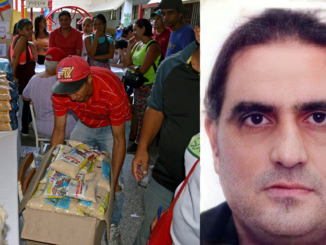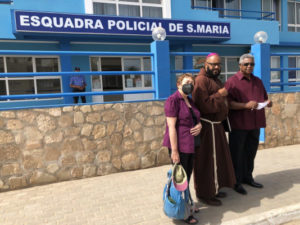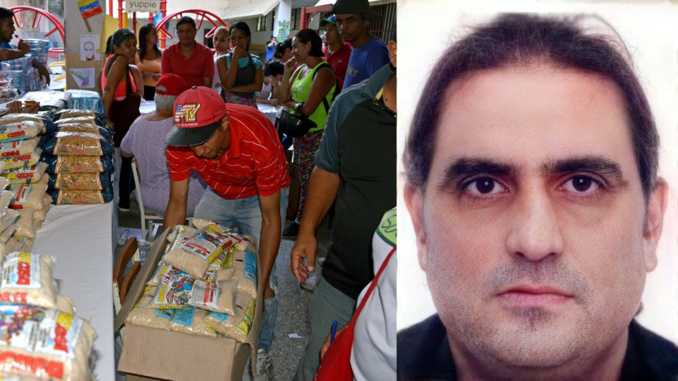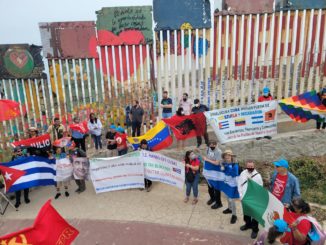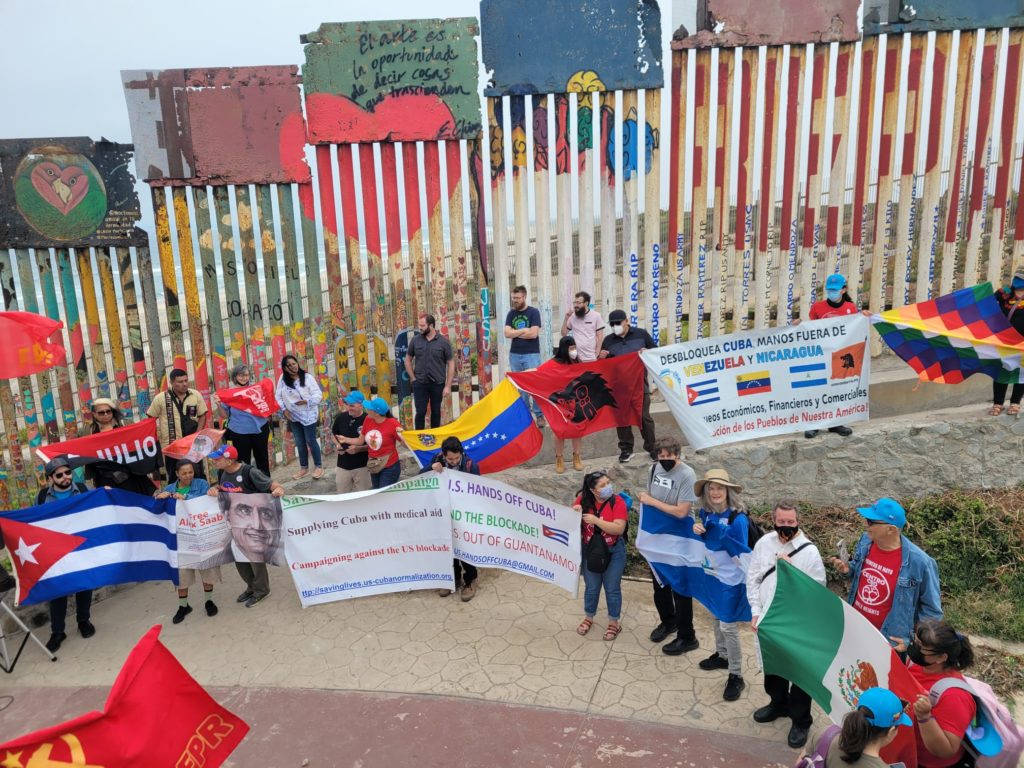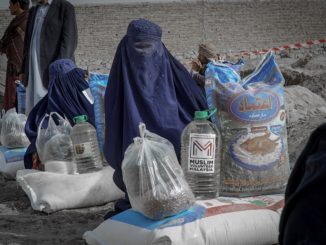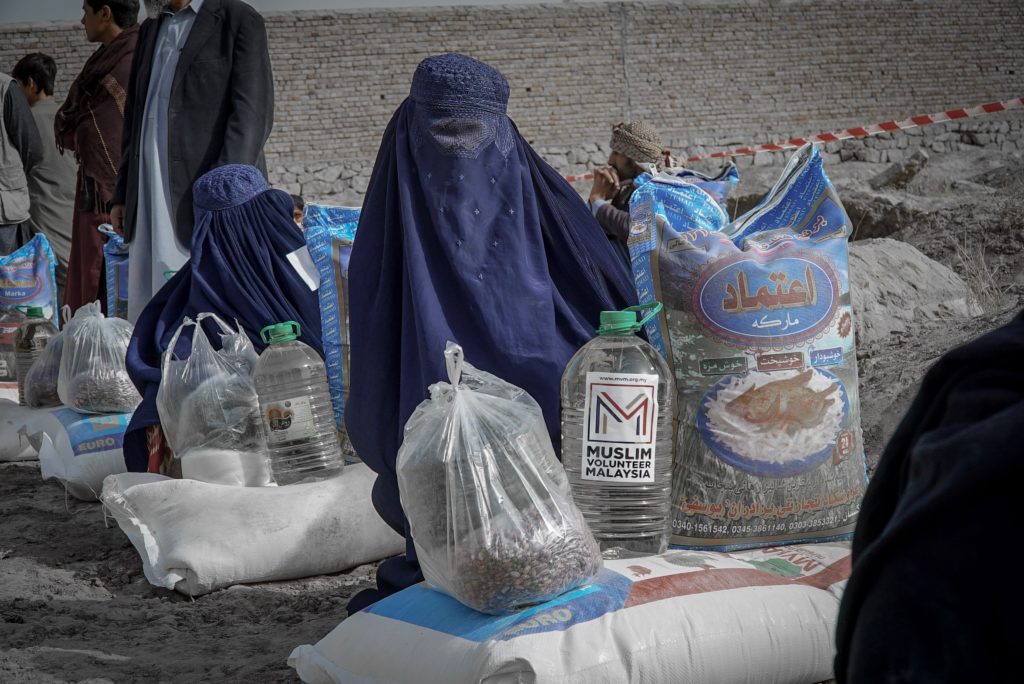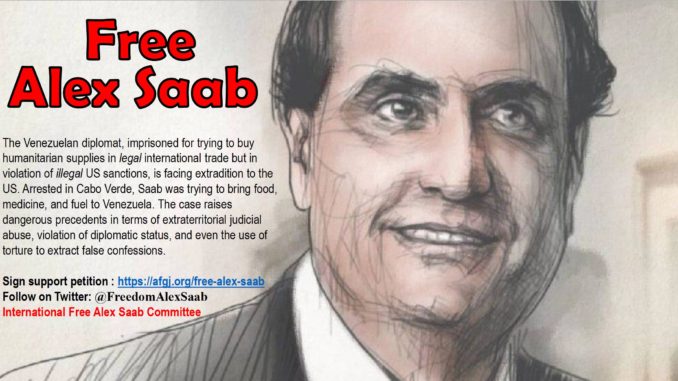
With the possible extradition of a Venezuelan diplomat to the United States on bogus charges, an emergency human-rights delegation organized by the International Campaign to Free Alex Saab was quickly dispatched to Cabo Verde, where he is imprisoned. This island archipelago nation off the west coast of Africa is one of the smallest, poorest and geographically isolated countries in the world.
The international human-rights delegation did not gain Alex Saab’s freedom. Officials denied them a visit with him. But breakthroughs were made in raising the visibility of the case, which involves enormous political, legal and moral issues with long-term political consequences.
The case involves the abduction of a diplomat by the world’s sole superpower locked in an unequal struggle to destroy the formerly prosperous, oil-rich country of Venezuela. The attack on Venezuela is not motivated on the U.S. part by the imperfections in Venezuelan society, but on Venezuela’s past successes in fighting poverty, promoting regional integration, and acting like a sovereign nation. Otherwise, the United States would be lavishing aid on Venezuela, instead of on the apartheid state of Israel, the nacro-state of Colombia and the absolute monarchy of Saudi Arabia.
The kidnapping of Alex Saab is a dramatic and far-reaching effort to enforce the illegal U.S.-decreed policy of economic sanctions. The United States is attempting to impose its will on a country by deliberately attacking the civilian population. Illegal sanctions are a conscious policy of imposing economic havoc to “make the economy scream.”
Saab, a Venezuelan diplomat abducted by the U.S. government a year ago, has been held under torturous conditions. The United States denying diplomatic immunity violates international law.
International Campaign to Free Alex Saab
The powerful corporate media, by omission, can render a news item invisible. The Saab case is virtually unknown in the United States, even among progressive political journalists, left organizations and solidarity activists. Washington’s demand for the extradition of Alex Saab is being covered more extensively in African and Latin American publications. In Venezuela, as expected, the case is well known.
Among some who are aware of the case, an inordinate concentration on the Saab, the individual, obscures the larger issues of national sovereignty and human rights.
Gathering information on what was involved was no easy task. The U.S. charge of “money laundering” by a private businessman in a country wracked by extreme shortages hardly created sympathy for Saab’s case. It was only as the actual facts emerged that a support plan evolved for the international solidarity campaign.
That Saab has withstood a year-long arrest, torture and months of solitary confinement rather than comply with U.S. demands to cooperate indicates he is not just a businessman willing to sell to the highest bidder.
The four-person human-rights delegation in Cabo Verde knocked on government doors, conducted interviews and spoke with the media. The local activist movement and a strong legal team supported them. The delegation was led by a Cabo Verde citizen, Bishop Filipe Teixeira, OFSCJ, a religious leader who lives in the Boston area and leads a congregation of Cabo Verdeans. Teixeira has a history of participating in social justice campaigns. Tweets, Facebook links and news reports have helped penetrate the wall of silence.
After collecting thousands of signatures, an international petition is being forwarded to the president and prime minister of Cabo Verde as well as to U.S. President Joe Biden. Several webinars to raise awareness were held, including one with Saab’s lawyers speaking from Cabo Verde and Nigeria.
Visit: Attorney General’s Office/Department of Justice to request Emergency meeting on US demand for extradition.Letter also be sent #FreeAlexSaabDelegation #FreeAlexSaab @iacenter @TaskAmericas @RojoCamacaro @ecowas_cedeao @ghananews @CaboVerdeNews @All4GlobalJust @ninopagliccia pic.twitter.com/9KyEDXgs4e
— FreedomForAlexSaab (@FreedomAlexSaab) June 7, 2021
Role of Solidarity Activists
Solidarity and people’s movements working together can become a powerful material force, breaking through silence, fear and repression. The focus for international solidarity work in this period is to defend movements and even countries under relentless U.S. imperialist attack and destabilization. This is done without placing unrealistic expectations or creating unrealistic images of how wonderful the internal situation in the targeted country is. Solidarity is not a pass for interference, second guessing, criticism or for euphoric idealism.
It is essential to focus full attention on the source of the problem—U.S. imperialism—and not get lost in the weeds of criticizing the victim. U.S. sabotage, imposed shortages, mercenary attacks and fueling national antagonism are intended to create and intensify internal divisions. Shortages are intended to increase corruption, side deals, privilege and resentment. The targeted country may be wrongly blamed for the crisis created by U.S. actions.
Simply put, many progressive goals are thwarted under conditions of illegal sanctions, because that is the purpose of sanctions. The victimized country is obligated to defend itself in the face of destabilization and constant sabotage.
At each step, keeping the focus on the crime of U.S. actions provides a grounding for progressive solidarity. This is true not only in defending attempts at revolutionary change, such as in Cuba or Venezuela. We also raised the U.S. role in Cabo Verde, a country that clearly didn’t decide on its own to pull Saab from his flight or order him detained. Cabo Verde’s isolation and strategic position simply made that country a convenient location for the long arm of U.S. extraterritorial judicial overreach.
This case must be used in the global challenge against arrogant U.S. lawlessness.
This article was originally published by the International Action Center and edited by Toward Freedom. A previous article by Roger Harris delved into the impact of sanctions.
Sara Flounders of International Action Center and Roger D. Harris of Task Force on the Americas were in Cabo Verde June 3-10 on the emergency human-rights delegation organized by the International Campaign to Free Alex Saab. The case can be followed on Twitter.

